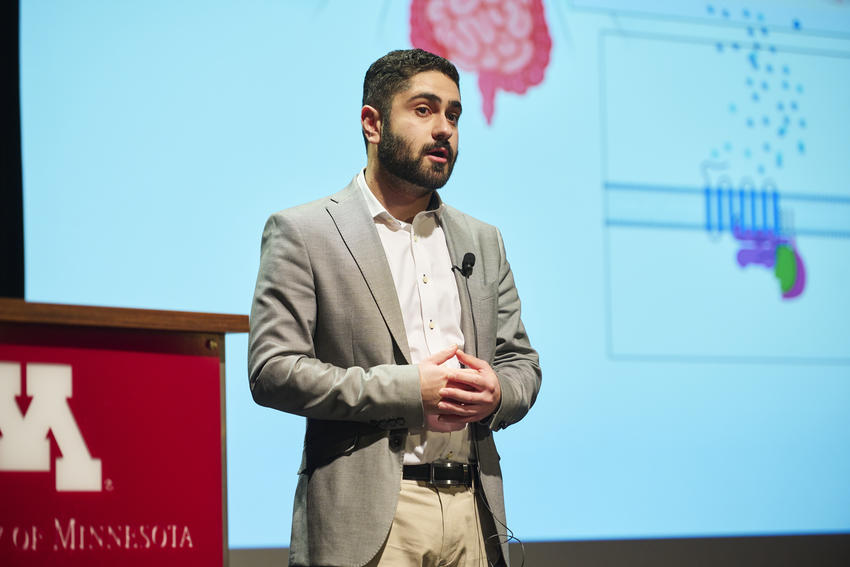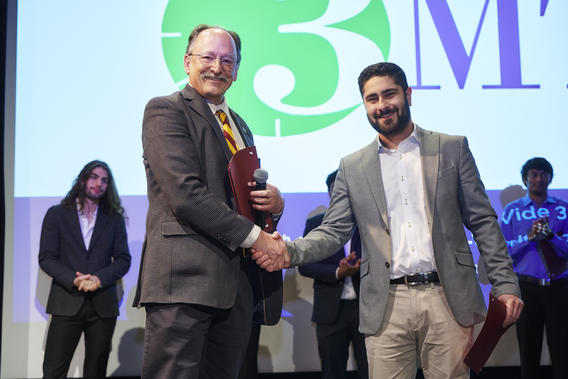Shekarabi becomes first School of Dentistry student to compete in 3-Minute Thesis

Aryan Shekarabi, DDS/PhD student in oral biology, became the first School of Dentistry student to compete in the University of Minnesota’s 3-Minute Thesis competition in November.
Originally established by the University of Queensland in 2008, the 3-Minute Thesis competition requires learners to condense their research projects into a three-minute, non-specialist presentation with the help of one powerpoint slide. The competition aims to promote research communication among graduate students.
Shekarabi first participated in the School of Dentistry’s inaugural competition at the Charles F. Schachtele Memorial Symposium in Oral Biology in September, where he joined four other oral biology learners in presenting their research. He won both the judges’ award and the audience choice award for his research in the gut microbiome’s role in neurodevelopment.
“My main interest is in how small molecules interact with our body’s receptors, producing physiological and systemic changes,” he explained. “My research project has to do with how small molecules produced by our gut microbes may be interacting with us. More precisely, I’m exploring how these small molecules influence the developing central nervous system.”
Shekarabi was excited about the prospect of participating in the competition, whose purposes he values. “Science communication is really important. Discussing science with someone who may not have a background in the topic is a challenge,” he explained. “As scientists, clinicians and advocates, we need to be able to break down convoluted and challenging material in a way that the public can understand. We aim to create trust in our communities, and communicating our work is a key part of fostering that trust.”
Condensing his research down to three minutes was challenging. “It took some reflection on the topic and definitely a lot of trial and error” to get it to be something the general public could understand.

Winning the School of Dentistry’s competition landed Shekarabi a spot in the university-wide competition, which opened Shekarabi’s eyes to the other great work happening across campus.
“It was eye opening to see all the innovative research projects going on at the university,” he reflected. “It was a great privilege to represent the School of Dentistry and share my research.”
Though the process—and the competition itself—was challenging, it helped Shekarabi grow as a researcher and as a communicator. “It brought me new insights, by making me reconsider how I present my research, and how to make it accessible and engaging not only to my fellow scientists and clinicians, but also to the general public.”
And most of all, the experience reminded Shekarabi of his gratitude for the community around him.
“I’m deeply appreciative of the chance to present my work, and extend my gratitude to the School of Dentistry and the oral biology program for their incredible support,” he said. “I’m also immensely thankful to my family, friends, advisors and mentors who have played a crucial role in helping me reach this stage in my career.”